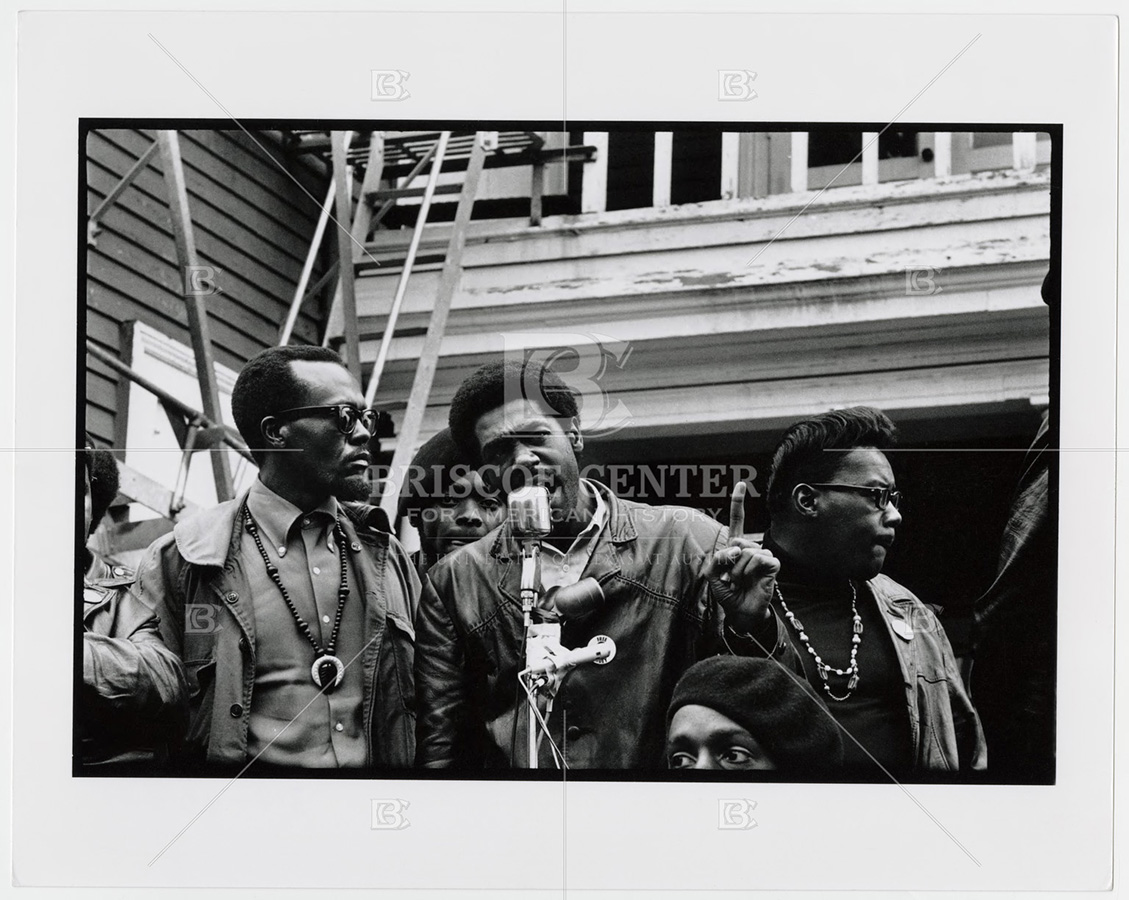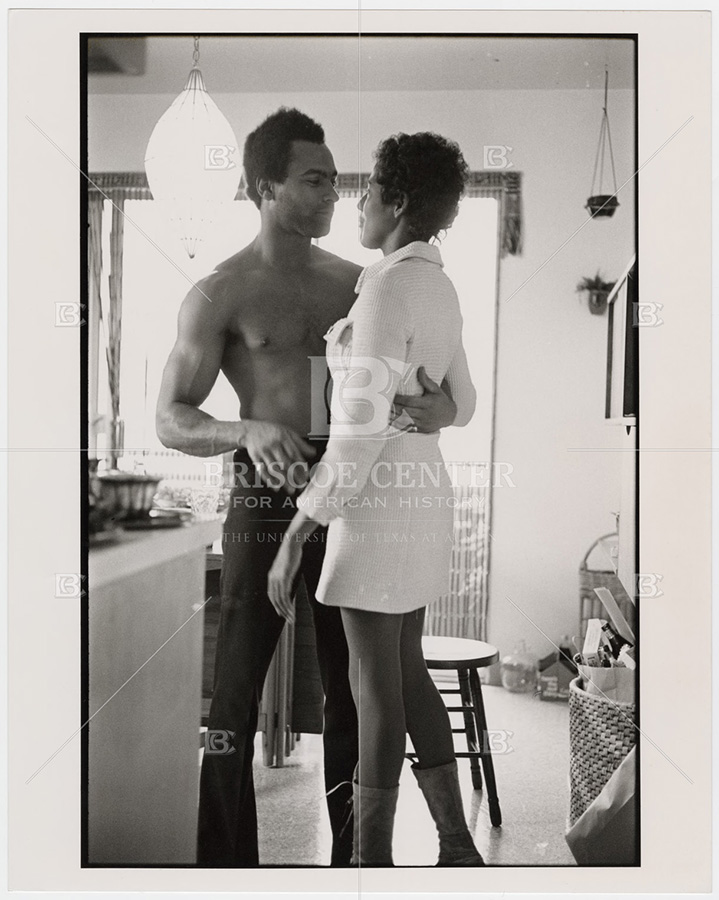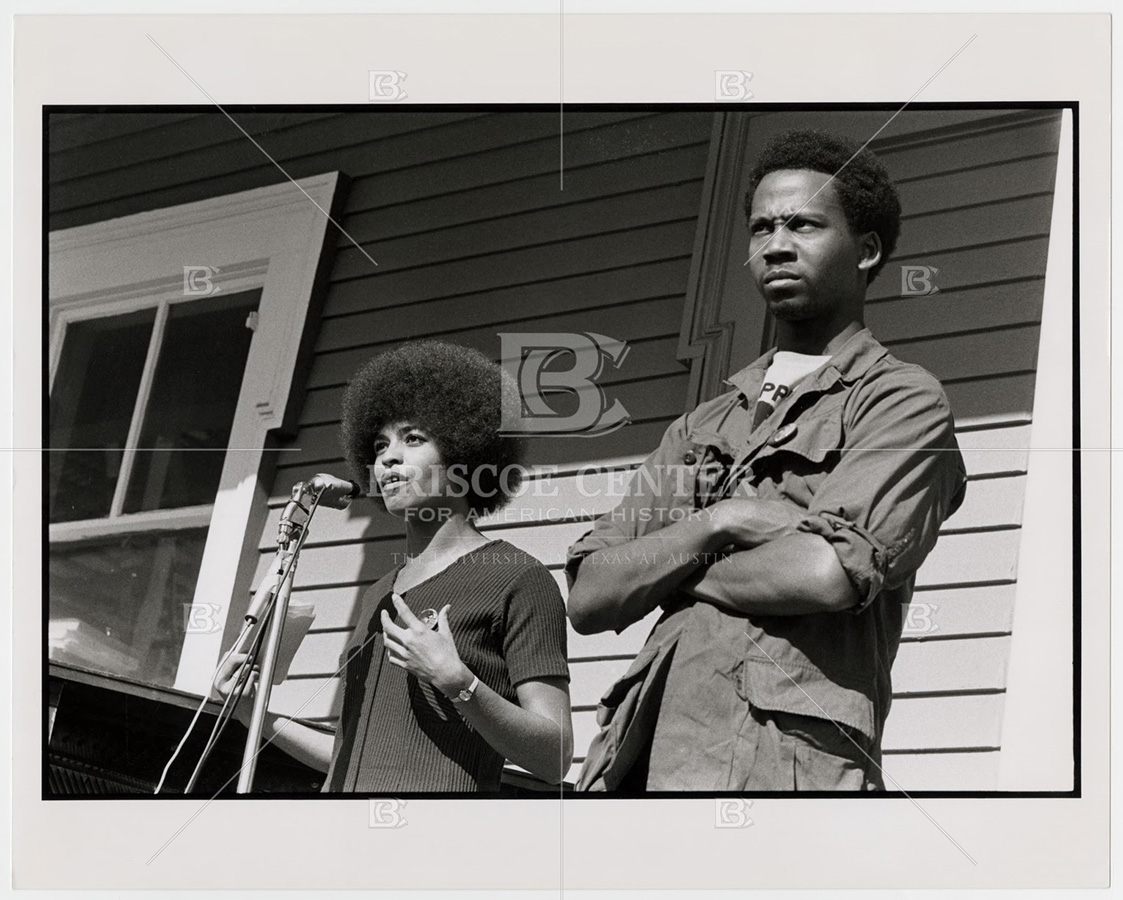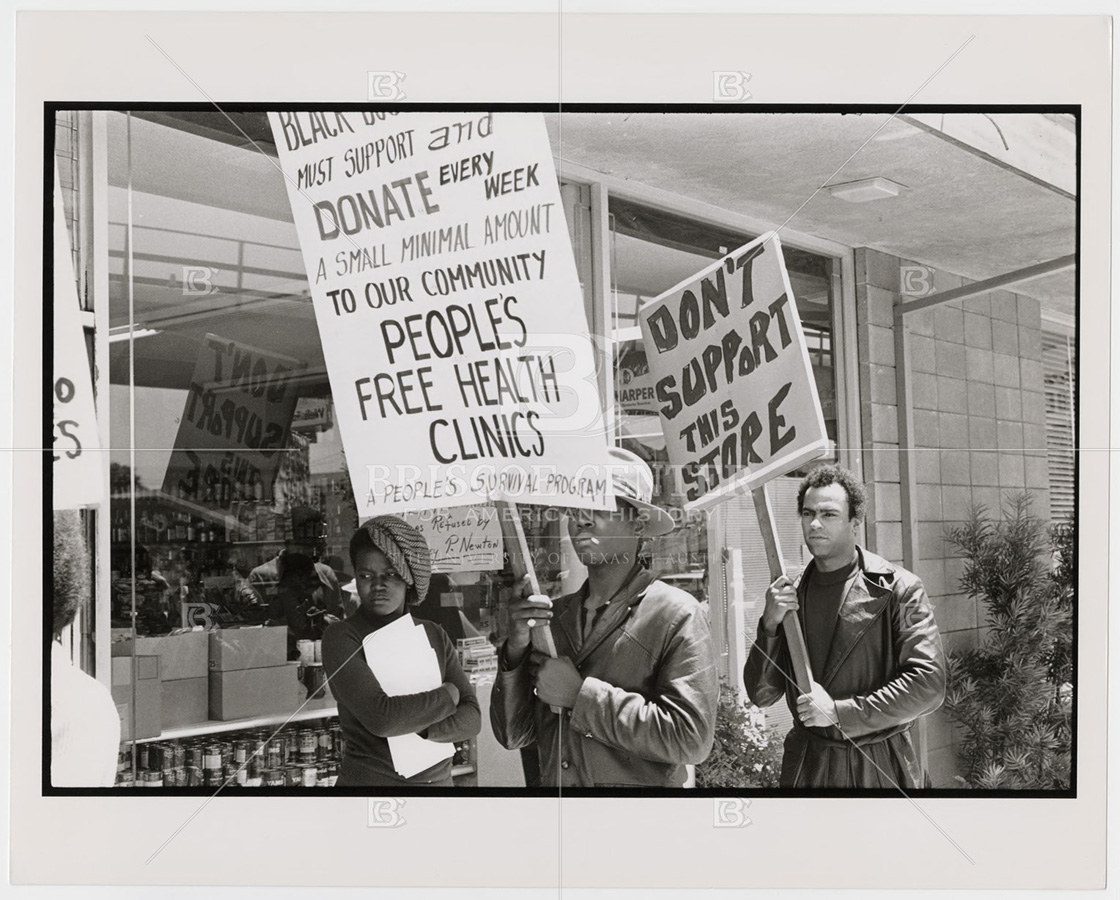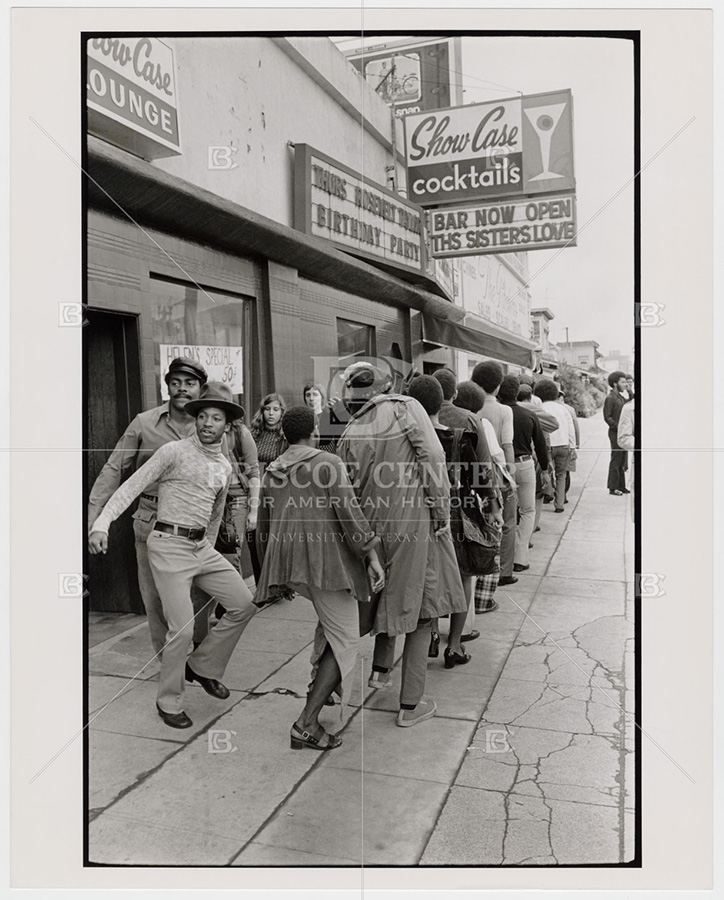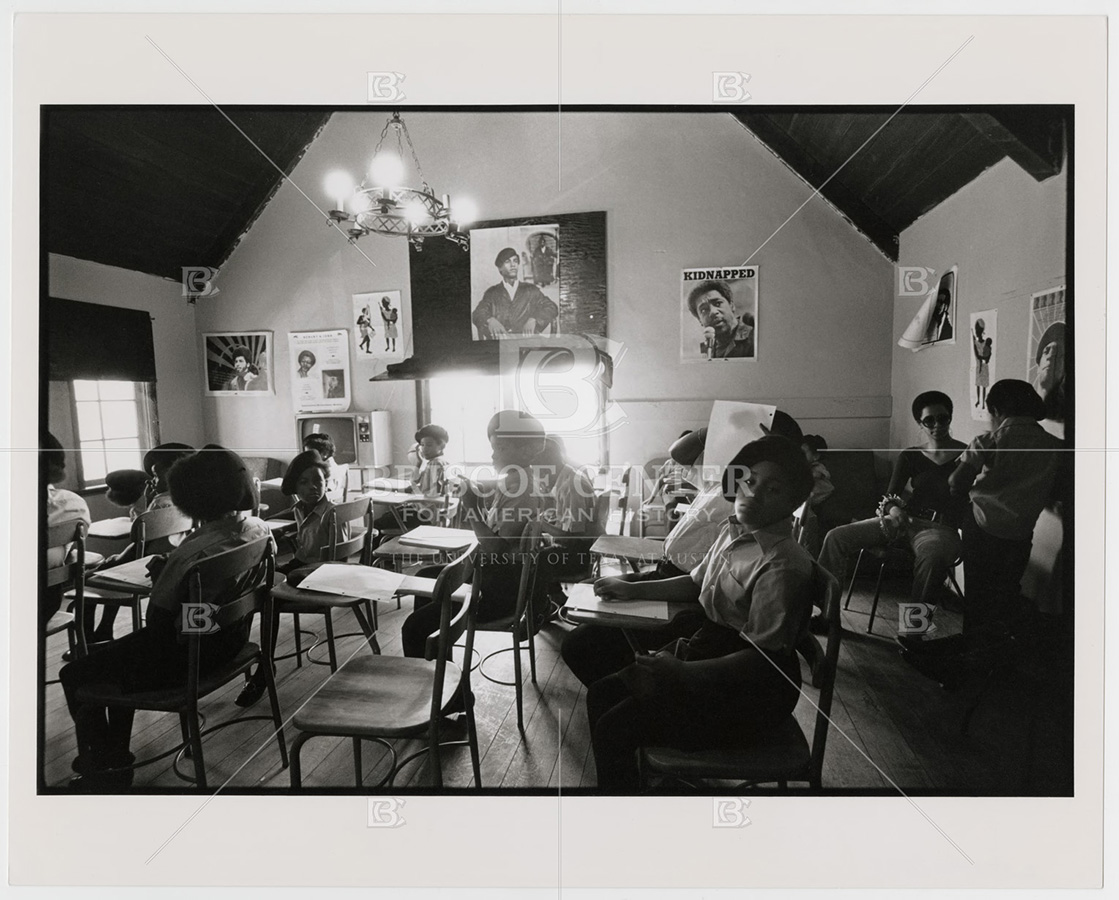The Briscoe Center has acquired the photographic archive of Stephen Shames. Perhaps best known for his role as the Black Panther Party’s photographer between 1967 and 1973, Shames has also documented many political and social issues over a 50-year career.
“Shames has used his camera to document the intimate histories of a wide range of subjects, including black political activism in the Bay Area, everyday life in New York City, and child poverty across America,” said Don Carleton, executive director of the Briscoe Center. “His archive will not only be preserved here at the center, it will be actively utilized in our mission to foster exploration of the American past, which is why a selection of his work prints is currently on display in the center’s exhibit hall.”
Shames was born in Cambridge, Massachusetts, but grew up in California. He began working as a photojournalist in 1967, covering local protests and unrest in the Bay Area while still a student at the University of California, Berkeley. That same year he became a photographer for the Black Panther Party after meeting its co-founder Bobby Seale at an anti–Vietnam War demonstration. The party, revered by some and vilified by others, burst onto the scene in the late 1960s with a revolutionary agenda for social change and the unapologetic empowerment of African Americans.
Through his friendship with Seale, Shames gained behind-the-scenes access to the party’s organization, personnel, and community outreach work. He captured the public face of the party—such as street demonstrations and protests—as well as many unscripted moments, including strategy meetings, student life in Panther schools, and community food programs in action. Shames also documented Bobby Seale’s mayoral campaign in Oakland.
“As a young man I was privileged to have inside access to the Black Panther Party. Later, as a photojournalist and artist I traveled the world and embedded myself in the lives of many living on the edges of society,” said Stephen Shames. “I hope students and scholars can use these archives to enter worlds they cannot see in person, but can experience through historic photography. I learned a great deal from the people I photographed. I hope others can expand their knowledge and understanding of our world through my work.”
A selection of Shames’s work prints is now on display at the Briscoe Center. The prints show party members and leaders, as well as rallies, demonstrations, and nationwide activities. Together, these photographs reveal a lesser-known side of an organization whose image is often perceived as excessively militant.
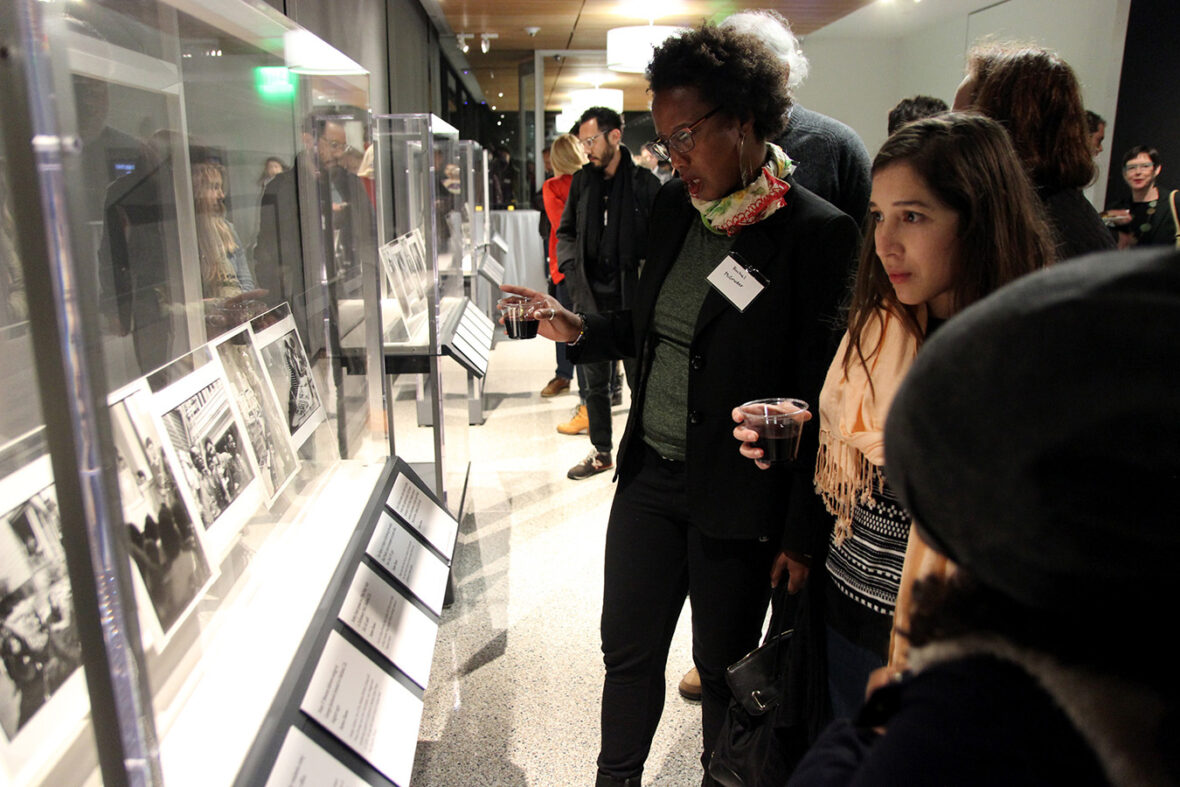
In addition to his work with the Black Panther Party, Shames has authored numerous award-winning photo essays on social issues. His photographs are found in the permanent collections of the Museum of Modern Art in New York, the National Museum of African American History and Culture in Washington, D.C., and the National Civil Rights Museum in Memphis. Shames is the author of ten books, including Bronx Boys, Outside the Dream: Child Poverty in America, and Power to the People: The World of the Black Panthers.


